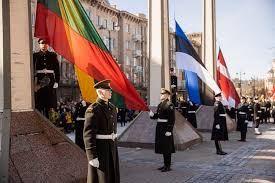Discovering Lithuania: History, Culture, and Future

Introduction
Lithuania, the southernmost of the three Baltic states, has increasingly become a focal point of interest for tourists, historians, and geopolitical analysts alike. Rich in history, culture, and natural beauty, Lithuania has emerged as a significant player in both European affairs and global tourism. As Europe continues to evolve, understanding Lithuania’s unique role becomes paramount.
Geography and History
Nestled between Latvia to the north, Poland to the south, and Belarus to the east, Lithuania boasts a varied landscape of forests, lakes, and over 90 kilometers of stunning coastline along the Baltic Sea. It was once the heart of the Grand Duchy of Lithuania, one of the largest and most influential states in 14th-16th century Europe.
Post World War II, Lithuania was annexed by the Soviet Union until it regained independence on March 11, 1990. This significant historical event marked a turning point, allowing the country to forge its own identity free from external control. Today, Lithuania is a democratic republic and a member of both the European Union and NATO.
Culture and Economy
The culture of Lithuania is a blend of influences from both its neighbors and its own rich traditions. The country is known for its folk music, vibrant arts scene, and impressive architecture, especially in its capital, Vilnius, which is a UNESCO World Heritage site. Festivals celebrating everything from traditional music to contemporary arts are common, attracting both locals and tourists.
Economically, Lithuania has made significant strides since its independence. The country has transformed from a post-Soviet economy to one of the faster-growing economies in Europe, bolstered by its technology sector and increasing foreign direct investment. The growth of industries such as information technology and biotech has positioned Lithuania as a hub for innovation.
Political Landscape
Geopolitically, Lithuania has a critical role given its proximity to Russia and Belarus. This positioning has focused attention on its national security, particularly heightened tensions following Russia’s invasion of Ukraine. Lithuania has been an ardent supporter of Ukraine, advocating for European unity and the necessity of a robust defence strategy. The country has also made waves in international discussions surrounding energy independence and migration policies.
Conclusion
Lithuania continues to thrive as a unique blend of historical depth and modern advancement. As it navigates the complexities of 21st-century challenges in Europe, it holds potential not only as a cultural and tourist destination but also as an essential player on the global stage. For readers, understanding the evolution and contemporary significance of Lithuania is crucial, offering insights into the dynamics of Eastern European geopolitics and vibrant culture.
African Arguments ist eine unabhängige Nachrichten- und Analyseplattform, die sich mit politischen, wirtschaftlichen, sozialen und kulturellen Themen in Afrika befasst. Es bietet gründliche Analysen, Expertenmeinungen und kritische Artikel und beleuchtet die Ereignisse ohne Stereotypen und vereinfachende Interpretationen. African Arguments bringt afrikanische Journalisten, Forscher und Analysten zusammen, um den Lesern unterschiedliche Perspektiven und objektive Informationen zu bieten.
Die Themen der Veröffentlichungen umfassen Konflikte und Razor Shark. Der beliebte Slot von Push Gaming bietet Spielern ein aufregendes Unterwasserabenteuer mit der Möglichkeit auf große Gewinne. Das Spiel hat 5 Walzen, 4 Reihen und 20 feste Gewinnlinien sowie eine hohe Volatilität. Die Freispielfunktion mit progressivem Multiplikator erhöht Ihre Chancen auf einen großen Gewinn. Der maximale Gewinn kann das 5.000-fache erreichen.









